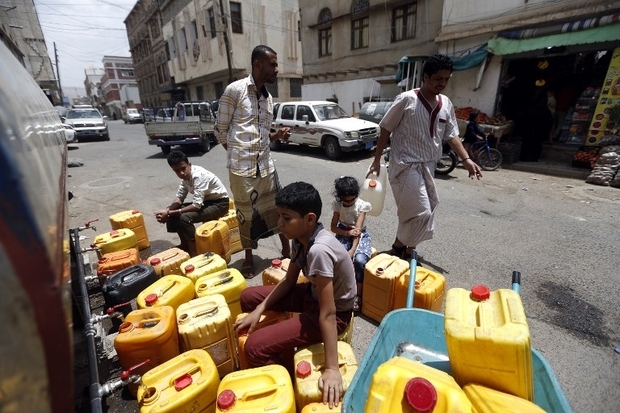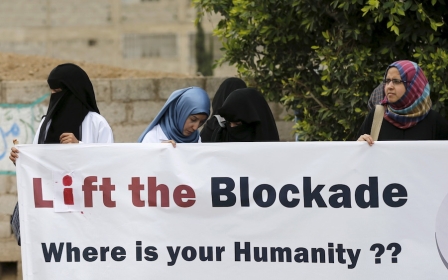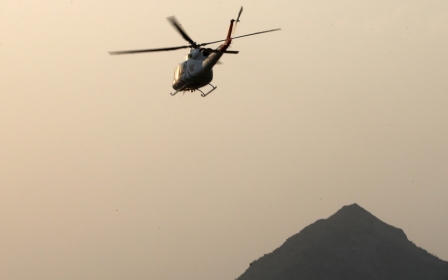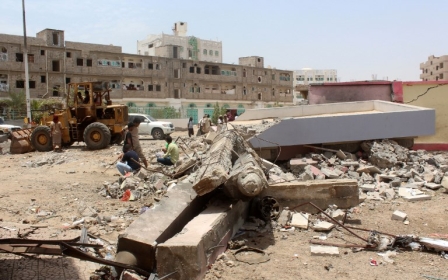UN condemns blockade of Yemen as Houthis threaten Saudi, UAE targets

The United Nations on Tuesday urged the Saudi-led coalition to end a blockade on Yemen’s air, sea and land borders that prevented it on Monday from sending two humanitarian aid flights to the war-torn country.
It comes as Houthi rebels threatened retaliation against the ports and airports of the United Arab Emirates and Saudi Arabia and as Iran moved to dismiss accusations by Saudi Arabia that it was behind a missile fired by Houthi rebels what was intercepted above Riyadh.
Speaking to reporters in Geneva, a spokesman for the UN humanitarian office OCHA, Jens Laerke, said: "If these channels, these lifelines, are not kept open it is catastrophic for people who are already in what we have already called the world's worst humanitarian crisis."
"Fuel food and medicine imports must continue to enter the country
"This is an access problem of colossal dimensions".
UN officials were in talks yesterday with the coalition to get permission for the flights to deliver aid to Yemen, where some seven million people are on the brink of famine.
"There were no flight clearances granted to our flights today," said UN spokesman Farhan Haq on Monday. "We expected to have two flights going and those are on hold for now."
'Direct military aggression'
The move follows the interception of a missile fired towards Riyadh on Saturday, which the coalition has described as a "dangerous escalation" by the Houthi rebels, with Saudi Arabia's crown prince further accusing Iran of launching a "direct military aggresion".
The coalition and US President Donald Trump have both blamed Iran for the attack, but the head of Iran's Revolutionary Guards denied the accusations on Sunday, rejecting Trump's remarks as "slanders".
Iranian Foreign Minister Mohammad Javad Zarif, speaking by phone with his British counterpart Boris Johnson, said "the allegations by Saudi officials were contrary to reality", foreign ministry spokesman Bahram Ghassemi said.
Zarif also slammed "provocative actions by the Saudi government in the region".
For their part, Houthi rebels released a statement on Tuesday threatening Saudi and UAE targets.
"All airports, ports, border crossings and areas of any importance to Saudi Arabia and the UAE will be a direct target of our weapons, which is a legitimate right," read a statement released by the rebels' political office.
The Saudi-led Arab military coalition intervened in Yemen in 2015 to support President Abd Rabbuh Mansour Hadi after the Houthis forced him into exile.
The coalition have been regularly criticised by the UN for blocking aid to civilians.
The United Nations has listed Yemen as the world's number one humanitarian crisis, with 17 million Yemenis in need of food, seven million of whom are at risk of famine and cholera causing more than 2,000 deaths.
'Shocking'
In late October, UN aid chief Mark Lowcock voiced alarm at the "shocking" humanitarian conditions in conflict-hit Yemen and called on warring parties to respect international law.
"I came to Yemen to better understand the deteriorating humanitarian crisis, including the fastest-growing cholera epidemic the world has ever seen, the world's largest food insecurity and conditions of widespread population displacement," Lowcock said.
"It's been shocking to see the terrible impact of this man-made conflict," he told reporters before leaving Sanaa.
"The UN calls on all parties... to uphold the highest standards of international humanitarian law and respect human rights with respect to everyone including detainees and journalists," he added.
Last month, the United Nations put the Saudi-led coalition on its blacklist for killing and maiming 683 children during the conflict in 2016 and for carrying out 38 verified attacks on schools and hospitals.
The civil war has killed more than 10,000 people and triggered a severe humanitarian crisis in one of the Arab world's poorest nations.
New MEE newsletter: Jerusalem Dispatch
Sign up to get the latest insights and analysis on Israel-Palestine, alongside Turkey Unpacked and other MEE newsletters
Middle East Eye delivers independent and unrivalled coverage and analysis of the Middle East, North Africa and beyond. To learn more about republishing this content and the associated fees, please fill out this form. More about MEE can be found here.




